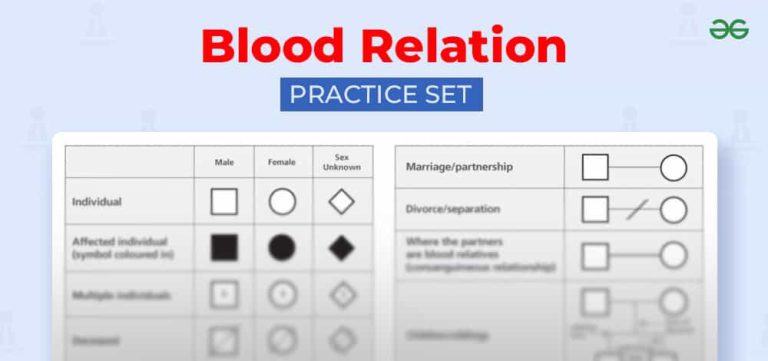Navigating the intricate queries about family connections in competitive exams can be daunting. Blood Relation Questions are a common feature in various competitive exams, testing a candidate’s logical reasoning and comprehension skills. This article delves into effective strategies to conquer these challenges, providing examinees with the tools they need for success. Not only do these inquiries test analytical skills, but they also gauge how well candidates can maintain clarity under pressure, a crucial aspect in competitive scenarios.
Deciphering the Family Identifying Patterns and Common Scenarios
Competitive exams often recycle certain patterns or scenarios in their inquiries about family ties. Recognising these patterns can save valuable time during the exam. For instance, scenarios might focus on multi-generational relationships or involve step-relatives. Practice is key to becoming adept at quickly identifying the core of the issue and avoiding common pitfalls. Familiarity with these patterns can also reduce anxiety, as candidates will feel more prepared and confident. It’s beneficial to analyse previous years’ papers to identify these recurring themes and prepare accordingly.
The Role of Deductive Reasoning
Deductive reasoning plays a crucial role in solving these puzzles. It involves drawing specific conclusions from general information provided in the enquiry. Candidates should practice breaking down complex information into simpler, more manageable parts. This methodical approach often reveals hidden links and relationships not immediately apparent. Enhancing this skill requires consistent practice and exposure to a variety of query types. It also helps to approach each problem with a fresh perspective, avoiding assumptions based on previous ones.
Time Management: Balancing Speed and Accuracy
While speed is essential in competitive exams, accuracy is equally important. A balanced approach ensures that candidates do not spend too much time on a single issue. Regular practice under timed conditions can help improve both speed and accuracy. It also helps in developing a sense of how much time to allocate to each problem. Practising with a timer can simulate exam conditions and help candidates get used to the pressure of timed tests. It’s also crucial to develop the skill of quickly eliminating implausible options, which can save precious time during the exam.
Practical Tips and Tricks for Exam Day
On the day of the exam, it’s important to stay calm and focused. If a problem seems particularly challenging, it’s advisable to move on and return to it later if time permits. Reading each enquiry carefully to grasp the exact requirement is crucial. Sometimes, the complexity is only apparent, and a careful reading can reveal a straightforward solution. It’s also helpful to do a quick review of key concepts and strategies the night before, ensuring that this knowledge is fresh in your mind. Moreover, maintaining a positive mindset can significantly impact performance, turning potential stress into a driving force for success.
In conclusion, mastering Blood Relation Questions requires a blend of logical thinking, pattern recognition, and effective time management. By employing these strategies and maintaining a calm, methodical approach, candidates can significantly improve their performance in this critical aspect of competitive exams. With practice and perseverance, these once daunting challenges can become a strong point in any candidate’s arsenal. A well-prepared candidate not only tackles these issues with ease but also uses them as an opportunity to showcase their analytical prowess.

